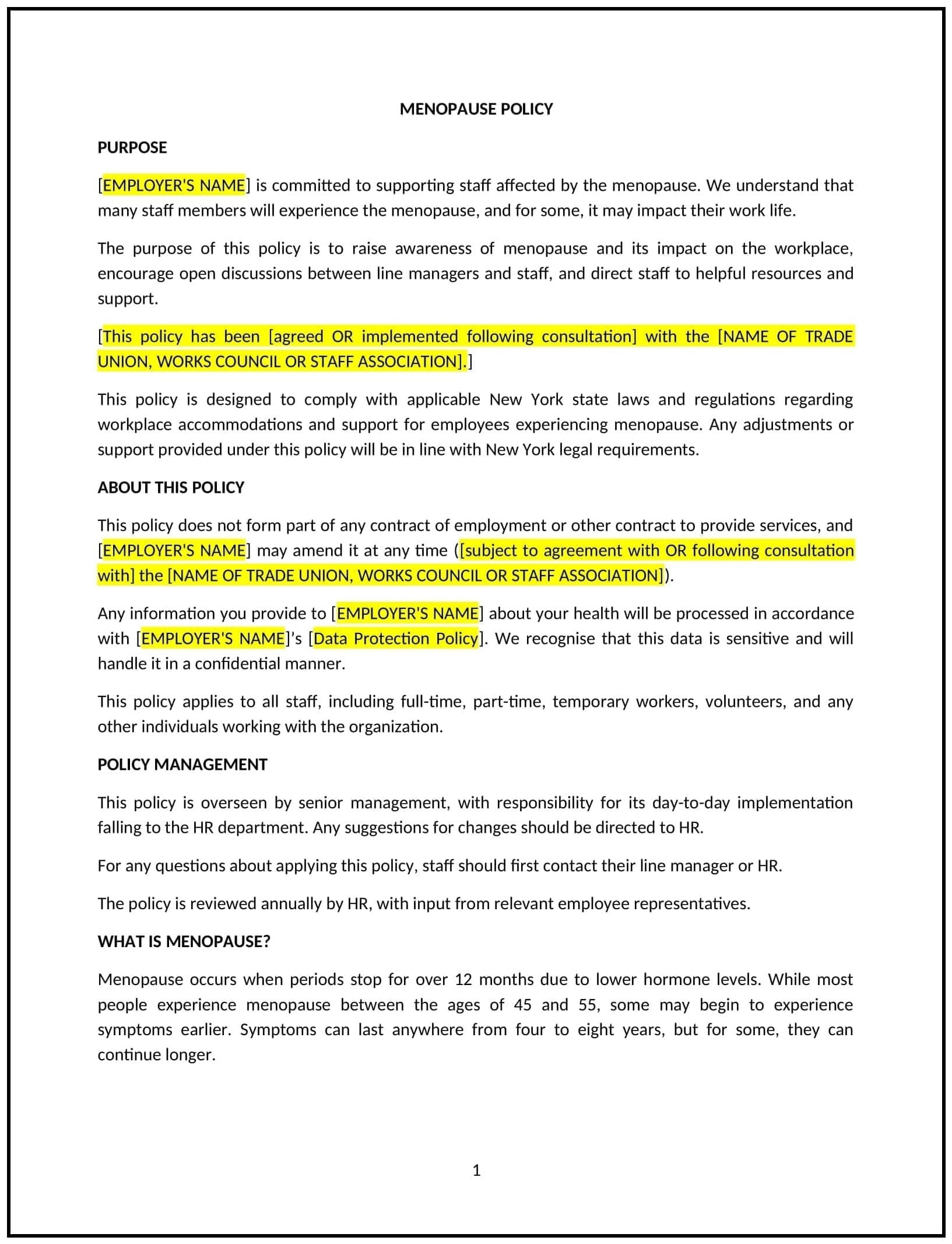Got contracts to review? While you're here for policies, let Cobrief make contract review effortless—start your free review now.

Customize this template for free
Menopause policy (New York)
This menopause policy is designed to help New York businesses create a supportive and inclusive workplace for employees experiencing menopause. Whether businesses are addressing workplace accommodations, promoting awareness, or supporting employee well-being, this template provides a structured approach to fostering understanding and inclusivity.
By adopting this template, businesses can reduce stigma, improve employee retention, and promote a culture of support and respect.
How to use this menopause policy (New York)
- Define the scope: Clearly outline who the policy applies to and the workplace situations it covers, such as accommodations, flexible work options, or communication practices.
- Provide support resources: Include information about resources available to employees, such as HR contacts, wellness programs, or external support groups.
- Encourage open communication: Outline steps for employees to discuss menopause-related needs with managers or HR in a confidential and supportive manner.
- Include workplace adjustments: Specify reasonable accommodations, such as temperature control, flexible work schedules, or additional breaks.
- Promote awareness: Detail plans for raising awareness and educating employees and managers about menopause to reduce stigma and foster empathy.
Benefits of using a menopause policy (New York)
This policy offers several benefits for New York businesses:
- Supports employee well-being: Providing resources and accommodations helps employees manage menopause symptoms while remaining engaged at work.
- Promotes inclusivity: A menopause policy fosters a more understanding and inclusive workplace culture.
- Reduces absenteeism: Offering workplace adjustments can help employees manage symptoms effectively, reducing unplanned absences.
- Enhances employee retention: Supporting employees during menopause builds loyalty and improves overall job satisfaction.
- Demonstrates leadership: A proactive approach to menopause in the workplace showcases the business’s commitment to employee health and inclusivity.
Tips for using this menopause policy (New York)
- Provide manager training: Educate managers on how to support employees experiencing menopause and handle related conversations sensitively.
- Offer flexible solutions: Encourage flexible work arrangements to help employees manage symptoms while balancing job responsibilities.
- Ensure confidentiality: Create a safe environment for employees to discuss menopause-related needs without fear of judgment or bias.
- Incorporate wellness programs: Introduce wellness initiatives, such as stress management workshops or physical activity programs, to support overall health.
- Regularly review the policy: Update the policy to reflect changes in workplace practices, employee needs, or relevant legal considerations.